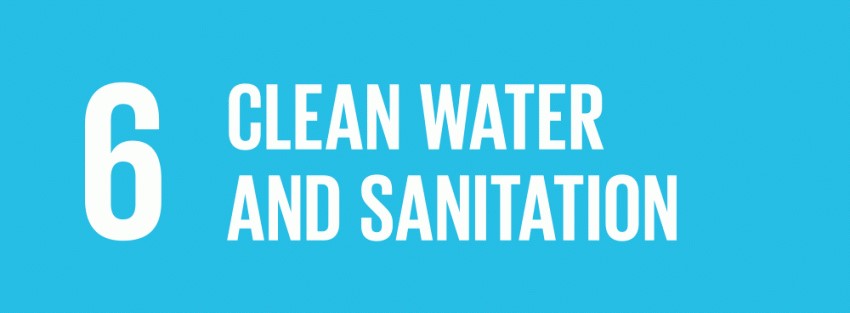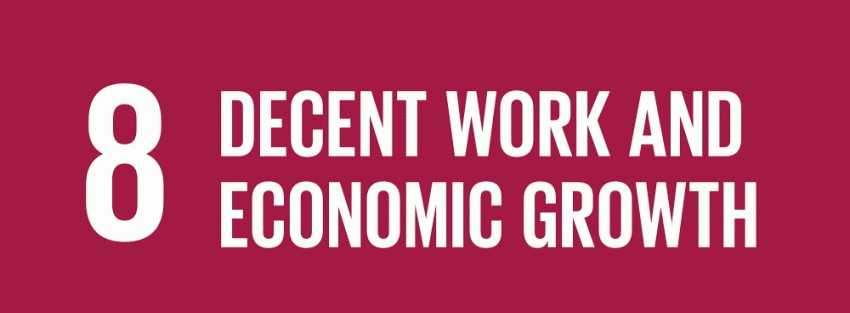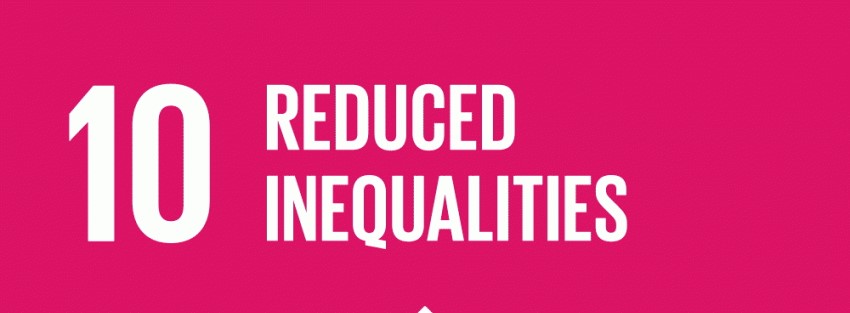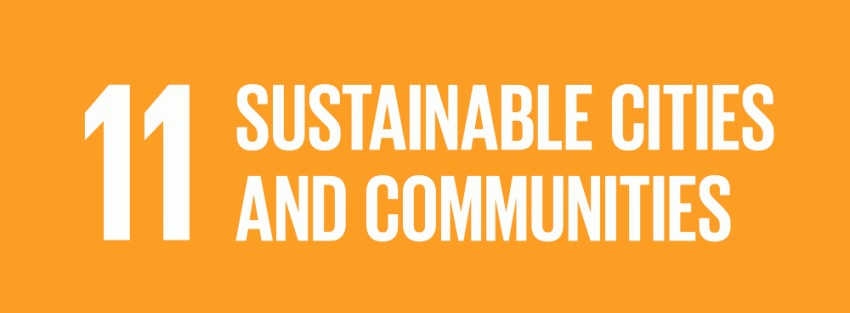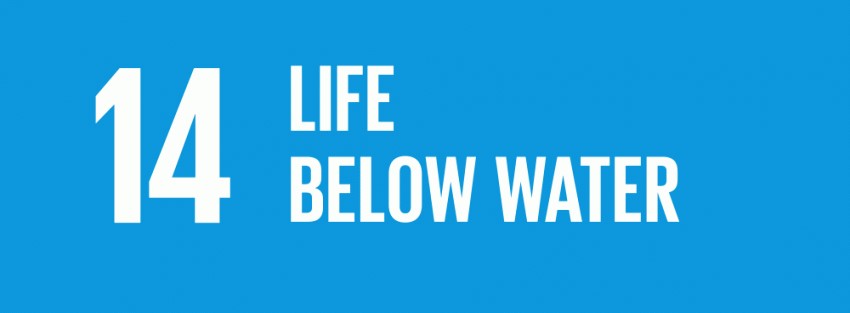SDG 5.6.8
Policy that protects those reporting discrimination from educational or employment disadvantage
5.6.8 Does your university as a body have a policy that protects those reporting discrimination from educational or employment disadvantage?
Student Grievances Policies and Procedures
https://cdn.adu.ac.ae/images-container/docs/default-source/handbooks/ug-handbook.pdf
Abu Dhabi University aims to foster the values of respect, integrity, fairness, and transparency among staff, faculty, and students. There are occasions, however, when conflicts arise which require resolution. Such conflicts are normally resolved informally and in good faith between individuals
and groups through conflict resolution processes.
To this end, Abu Dhabi University encourages informal meetings between a grievant(s) and the respondent(s). Abu Dhabi University also encourages the involvement of third parties; such as Student Council, Student Support Office personnel, and the appropriate Coordinator, Head of Department, or Dean, all of whom are expected to assist with communication and mediation.
In cases where the informal meetings prove unsuccessful or unsatisfactory, the grievant has the right to file a formal grievance that complies with the terms of this policy and its procedures.
Definitions
This policy uses the following definitions:
Grievance: A request by a student for a formal investigation of decisions or actions by a faculty or staff member of the University that are perceived to be wrong, mistaken, unjust, discriminatory and in violation of the rights of the student.
Grievant: The person(s) who submits the grievance.
Faculty: Members of the University faculty including parttime, full-time and non-regular faculty, such as visiting and adjunct faculty.
Employee: A person officially employed by Abu Dhabi University in any capacity.
Instructor: Any person employed by the University who teaches a class, including part- time, full- time and nonregular instructors such as visiting and adjunct instructors.
Respondent: The person or persons cited in the grievance.
Staff: Any non- teaching employee of the University, including students.
Student: Any person who is registered for classes at Abu Dhabi University.
Students’ Complaints and Rights
• Access the syllabus of each course they study, particularly the assessment methods and criteria that are used to measure the achievement of the intended learning outcomes of the course.
• Express their ideas in class that is relevant to the subject matter, subject to the need for the instructor to maintain order, manage the learning process, and to stays on schedule.
• Receive reasonable assignments that are graded using only the methods and criteria indicated in the syllabus.
• Be told about the nature of the material that will be included in any graded examination.
• Check and discuss their graded examinations and papers with their instructors.
• Have instructors who attend their classes on time and at the scheduled times.
• Have instructors who schedule reasonable office hours for student conferences
• Have instructors who post their office hours on their office doors and in the syllabus.
• Have instructors who do not discriminate by personal prejudices, race, color, gender, religion, age, disability, or national origin.
• Participate anonymously in the process of evaluating the effectiveness of instructors.
• Be given privacy, without improper disclosure of personal information from academic, counselling,
disciplinary, financial, and medical records held by the University, although the University, in loco parentis, may share such records with a student’s parent or guardian.
• Start and join clubs and sports teams, with the prior knowledge and approval of Student Engagement and Development Office.
• Promote their common interests through collective advocacy, such as via the Students’ Council
• Be treated with respect and courtesy by Abu Dhabi University employees.
Confidentiality
Confidentiality will be upheld by all parties to the highest degree possible at all stages of the grievance. This means that no issue regarding the grievance will be discussed with any person who is not directly involved in the investigation.
A student may not submit a formal grievance in the following circumstances:
• A grievance is against another student(s) - such grievances should be processed by the Code of
Conduct.
• A grievance is against personnel decisions.
• A grievance is against grades awarded in particular courses or academic decisions regarding academic work unless there is an element of harassment and discrimination involved in the claim.
• A grievance is based on the same or similar circumstances that are pending resolution or have been resolved or are under adjudication and involve the same student.
• A grievance is against a University policy or procedures, or a University employee is acting in compliance with those policies/procedures.
Implementation
The Head of Student Support Office or the designee will be responsible for the implementation of this policy. The implementation will comprise six phases:
1. The Head of Student Support Office forwards and discusses the grievance with the provost before
forming a Student Grievance Committee (SGC). If the Provost can reach a solution which satisfies
the grievant, the grievance will be closed. Campus Directors play the role of the Provost in their campuses.
2. The SGC will comprise:
a. The Provost, or designee, who will serve as a Chair.
b. The Dean of a college other than the concerned college (to beb named by the Provost), who will serve as a member.
c. one student, representing the Student Council will serve as a member. Decisions will be made on the basis of formal votes, in all cases.
3. Final decision/recommendations will be shared with the concerned Department Head/Dean by the Provost.
4. Final decision/recommendations will be shared with the grievant by the Head of the Student Support Office.
5. Any appeal concerning this report must be forwarded by the Head of Student Support Office to the Chancellor in writing within 5 working days of the grievant’ s receipt of the final decision/recommendations.
6. The Chancellor will make a final decision within five working days of receiving the appeal or, in cases where due process has been shown not to have been followed, direct that the SGC hear the case de novo.
Student Grievance Committee Rules
The following conditions and processes apply:
Student Grievance Forms must be held on behalf of the SGC, and made available to students on request, by the Student Support Office.
A grievance must be submitted via the Student Support Office within two weeks of the day in which the event allegedly took place or the decision was taken.
The Student Support Office is to place all grievances on file, on behalf of the SGC, along with other pertinent grievance documents and the determinations made by the SGC, and Chancellor.
If an SGC member declares or discovers a conflict of interest during proceedings, or a conflict of interest involving an SGC member is discovered by another SGC member during proceedings, the member involved may pardon him/ herself from the committee or be excused by the Chair.
Should a disagreement arise between a committee member and the Chair as to whether or not a committee member should be excused on the grounds of a conflict of interest, a resolution will be sought by a majority vote.
SGC committee members may not also serve on any Appeals Committee appointed by the Chancellor.
Appeals
• The Grievant shall have the right to appeal the SGC report to the Chancellor through the Head of Student Support Office. This appeal must be in written form and filed within five (5) days.
• The Chancellor will review the SGC report to determine whether the evidence and the process used to support the recommendations.
• The Chancellor shall have the discretion to:
a. upholds the SGC recommendation(s).
b. everse the recommendation(s).
c. refers the case back to the Student Grievance Committee for reconsideration de novo; or
d. upholds the recommendations of the SGC, with whatevermodification deemed reasonable.
The Chancellor’s decision shall be conveyed to the Grievant and the concerned Department Head/Dean by the Head of Student Support Office or the designee and filed by the Head of Student Support Office.
Promote and support academic integrity at Abu Dhabi University
Development of Clear Ethical Values
At Abu Dhabi University, we uphold the highest moral and ethical standards in all that we do.
Development of Clear Ethical Values
At Abu Dhabi University, we uphold the highest moral and ethical standards in all that we do. The Academic Integrity Policy (AIP) establishes the framework for the expected conduct of students to maintain the highest standards of ethics.
We think that having a strong, comprehensive ethical culture is essential to fulfilling our objective, not merely an ideal. Our institution's DNA is profoundly ingrained with our dedication to building a moral and virtue-based corporate environment. This dedication is demonstrated by the ethical principles that are firmly established in our publicly accessible strategic document, the Abu Dhabi University Code of Ethics, including diversity, honesty, respect, and fairness.
The activities, choices, policies, and practices of our institution are guided by the Abu Dhabi University Code of Ethics. It establishes the norm for our behavior and decision-making expectations of one another and serves as the cornerstone of our university's reputation as an ethically responsible institution. This paper, which is available to everyone on our website, serves as a tangible example of our dedication to moral principles.
Our Code of conduct is established to foster and protect the core mission of the University, to foster the scholarly and civic development of the University’s students in a safe and secure learning environment, and to protect the people, properties and processes that support the University and its mission.
is publicly available and can be accessed at the following URL: https://cdn.adu.ac.ae/images-container/docs/default-source/handbooks/ug-handbook.pdf.
This document outlines our commitment to ethical values, as well as the responsibilities of our community members in upholding these values.
Ethical Values-based Training
At Abu Dhabi University, we understand that fostering an ethical culture calls for more than just outlining our ethical principles; it also necessitates active community education. As a result, we regularly train employees at all organizational levels using our ethical principles.
These training sessions concentrate on real-world applications of our ethical principles in daily operations and decision-making, as well as how to deal with potential ethical conundrums.
Our mandated Ethics Training Program, which is required of all teachers, staff, and students, serves as a tangible example of our dedication to training. This program focuses on numerous facets of ethical behavior through online modules, workshops, and lectures. Our Office of Ethics and Compliance keeps records of these training sessions, including attendance and subjects discussed.
Office for Ethical Compliance
Abu Dhabi university's dedication to maintaining an ethical culture is further reflected in our organizational structure, which includes an Office for Ethical Compliance. This office, led by a designated official with oversight on ethical matters across the institution, is tasked with developing, implementing, and monitoring policies and programs that promote ethical conduct.
The office's responsibilities include providing ethics training, advising on ethical issues, managing the ethics hotline, and conducting investigations into reported ethical violations. The office ensures that ethical considerations are integral to our institution's decision-making processes and that everyone feels supported in their efforts to act ethically.
Internal Reporting System and Grievance Procedure
Abu Dhabi University aims to foster the values of respect, integrity, fairness, and transparency among staff, faculty, and students. There are occasions, however, when conflicts arise which require resolution. Such conflicts are normally resolved informally and in good faith between individuals and groups through conflict resolution processes.
To this end, Abu Dhabi University encourages informal meetings between a grievant(s) and the respondent(s). Abu Dhabi University also encourages the involvement of third parties, such as Student Council, Student Support Office personnel, and the appropriate Coordinator, Head of Department, or Dean, all of whom are expected to assist with communication and mediation. In cases where the informal meetings prove unsuccessful or unsatisfactory, the grievant has the right to file a formal grievance that complies with the terms of this policy and its procedures.
Evidence:
More info in the hand book: https://cdn.adu.ac.ae/imagescontainer/docs/default-source/handbooks/ug-handbook.pdf
Report discrimination
If you face discrimination in the UAE, you can report them to the government authorities. Find channels to report discrimination.
By law, discrimination is a crime. You can report discrimination through online channels of the UAE police across the country, or file a lawsuit through judicial authorities. You may also report discrimination experienced at workplace through the online channels of the Ministry of Human Resources and Emiratisation for the private sector employees and through the online channels of the Federal Authority for Government Human Resources (FAHR), which is responsible for human resources grievances in the government sector.
Human rights issues can be reported online through the eServices from the:
- Human Rights Office - Judicial Department –Abu Dhabi
- Community Development Authority (CDA).
- You may contact CDA on the toll-free number 8002121 or email at human_rights@cda.gov.ae.
- Contact the Ministry of Tolerance and Co-existence in the UAE to share any discrimination issues or email at: info@tolerance.gov.ae.
- Refer to the UAE's National Human Rights Institution for any complaints related to human rights.
- Learn about tolerance and co-existence in the UAE.
Updated on 21 Feb 2023
UAE ISSUES LAW AGAINST HATE CRIMES AND DISCRIMINATION
https://uaecabinet.ae/en/details/news/uae-issues-law-against-hate-crimes-and-discrimination
The United Arab Emirates has issued a new law against any form of discrimination on the basis of religion, caste, creed, doctrine, race, colour or ethnic origin following a Decree by President His Highness Sheikh Khalifa bin Zayed Al Nahyan.
The new law, No. 02 of 2015, criminalises any acts that stoke religious hatred and/or which insult religion through any form of expression, be it speech or the written word, books, pamphlets or via online media. The law also includes provisions for punishing anyone for terming other religious groups or individuals as infidels, or unbelievers.
The law is intended to provide a sound foundation for the environment of tolerance, broad mindedness and acceptance in the UAE and aims to safeguard people regardless of their origin, beliefs or race, against acts that promote religious hate and intolerance.
Penalties for violation of the various provisions of the law include jail-terms of six months to over 10 years and fines from AED50,000 to AED2 million.
The Anti-Discriminatory Law prohibits any act that would be considered as insulting God, his prophets or apostles or holy books or houses of worship or graveyards. It also has provisions to fight discrimination against individuals or groups on the basis of religion, caste, doctrine, race, colour or ethnic origin.
The law condemns actions that would comprise hate speech or the promotion of discrimination or violence against others using any form of media, including online, print, radio or visual media.
Strict action will be taken against any form of expressions of hatred or incitement to hate crimes spread in the form of speech and published media.
The law also criminalises any act that amounts to abuse of religion or vandalism of religious rituals, holy sites or symbols, and takes a serious view of violence on the basis of religious doctrines.
The law prohibits any entity or group established specifically to provoke religious hatred and recommends stringent punishments for groups or supporters of any organisations or individuals that are associated with hate crimes. It also bars any kind of events such as conferences and meetings within the UAE organised with the sole purpose of sowing seeds of discrimination, discord or hatred against individuals or groups on the basis of faith, origin or race. Receiving financial support for such activities is also punishable under the new law.
The law encourages anyone involved in any activity that violates the law to voluntarily submit themselves before the authorities and has provisions allowing the courts to waive penalties in such cases.
The new law does not contradict with any other existing laws meant to protect specially privileged groups in the society such as women, children and individuals with disabilities or others.
Handling emergencies
https://u.ae/en/information-and-services/justice-safety-and-the-law/handling-emergencies#crime
To report violence and abuse of women and children, contact
- Ministry of Interior on tollfree hotline 116111
- Community Development Authority- CDA on hotline: 800988
- EWAA Shelter for Women and Children on hotline: 8007283
- Dubai Foundation for Women and Children on 800111
- Child protection centre in Sharjah on toll-free helpline number 800 700
- Woman's protection centre in Sharjah on on toll-free helpline number 800 800 700
- Hemaya Foundation for Children and Women - Ajman on hotline: 800himaya (800446292)
- Aman Centre for Women and Children through RAK Police – 07-2356666
To report animal abuse, contact
- Ministry of Climate Change and Environment on hotline 8003050
- Dubai Municipality on hotline 800900
- Local municipalities across the UAE
- Emirates Animal Welfare Society on 9712-5010054.
To report human rights issues, use the eServices from:
- National Human Rights Institution
- Human Rights Office - Judicial Department –Abu Dhabi
- Community Development Authority (CDA).
- You can contact CDA on the toll-free number 8002121 or email at human_rights@cda.gov.ae.
Sustainable Development Goals (SDGs)
Abu Dhabi University is committed to becoming the best institution of its kind in the region. We are a private, multi-campus university committed to meeting the education, skills and knowledge needs in the United Arab Emirates and neighbouring countries through qualifications and standards that are respected across the world.
01
No Poverty
Sustained economic growth cannot be achieved without social inclusion as the whole of society has a role to play in the development of a country. Federal Law No. 13 of 1972 and its amendments by the law (No.2) in 2001 was issued by the Ministry of Community Development.
Introduction
Sustained economic growth cannot be achieved without social inclusion as the whole of society has a role to play in the development of a country. Federal Law No. 13 of 1972 and its amendments by the law (No.2) in 2001 was issued by the Ministry of Community Development.
(MOCD) as the first law to provide social benefits to members of the community to ensure and sustain the high quality of living for all UAE citizens. The Ministry continues to work today on enhancing social inclusion for all members of society where social benefits are extended to cover twenty-one segments of the community.
The UAE government has a future vision to change the culture of social support from the current ‘social welfare’ model to ‘sustainable social development’ that encourages independence and growth of families across the UAE.
ADU is determined to overcome all challenges that ADU and our students might face as a result of the poverty. We continue to be dedicated to empowering and inspiring outstanding students to pursue their goals. Our scholarships and financial aid programs are available to all students who want to fund their academic programmes. We consider it our duty to provide equal opportunities to students interested in pursuing higher education, enabling them to contribute to society regardless of their financial situation.
In additional to financial aid, ADU scholarships are being provided to outstanding students, through seven main categories, including the Sheikh Hamdan Bin Zayed Scholarship, the President’s Scholarship, the University Scholarship, the Academic Scholarship, the Athletic Scholarship, the Alumni Scholarship, and the Family Tuition Waiver.
We take pride in attracting the brightest students in the UAE and offer them generous support, to excel in their studies. Our Scholarship and Financial Aid programmes are part of ADU’s corporate social responsibility and are influenced by the UAE’s great leadership. ADU is constantly finding pioneering and innovative ways to support and facilitate the needs of our students to help them achieve their academic degree.
Emirates Red Crescent and ADU Launch a Humanitarian Funding Campaign
Emirates Red Crescent and Abu Dhabi University recently launched the Education Support Campaign in coordination with Abu Dhabi Cooperative Society and Lulu Group International. Through this collaboration, ADU and Emirates Red Crescent will support disadvantaged students in their university studies, providing them with an opportunity for a successful educational journey. The campaign aims to raise 10 million dirhams, and students will benefit from these funds starting 24 November 2021 and for one year. (This activity is licensed by the Department of Community Development – Abu Dhabi, permit number 022).
Abu Dhabi Cooperative Society and Lulu Group International will aid the campaign by facilitating donations through their different points of sale. Community members will show their solidarity by donating valuable aid to students, starting at two dirhams.
Public donations will be accepted via text message through Etisalat and Du. Bank donations can be sent to Sharjah Islamic Bank - account number (11445518006), IBAN (AE350410000011445518006). Individuals can also donate through the link provided on the Emirates Red Crescent website (https://www.emiratesrc.ae/eduadu), with the donations ranging from ten dirhams to 1,000 dirhams.
H.E. Salem Al Rayes Al Ameri, Deputy Secretary-General for Local Affairs at Emirates Red Crescent, said, "Sponsoring students is one of the permanent and continuous programs within the initiatives of the Humanitarian and Development Authority. We continue to witness a high rate of response and generosity from sponsors and benefactors. These donations are considered a true embodiment and reflection of the authority's efforts to invest in empowering individuals and guiding them towards achieving their aspirations and fulfilling their dreams."
Al Ameri added, "The Authority acknowledges the important role it plays in preparing future generations for the responsibilities of tomorrow."
Al Ameri praised the existing cooperation between the Emirates Red Crescent and Abu Dhabi University, which seeks to support education and provide opportunities to disadvantaged students whose family circumstances prevent them from continuing their educational path. The cooperation embodies Abu Dhabi University's commitment to fulfilling its social responsibility, as well as its leading academic role in advancing science and education as the most important pillars of human development in the country. He also praised the role of the Abu Dhabi Cooperative Society and Lulu International Group in supporting the activities of the campaign.
Salem Mubarak Al Dhaheri, Executive Director of Community Relations at Abu Dhabi University, said, "Abu Dhabi University is proud of its strategic partnership with Emirates Red Crescent in launching the Education Support Campaign. The campaign aligns with Abu Dhabi University's mission to support students and allows us to share social responsibilities with the community. We are proud of the continuous cooperation and renewed partnership with Emirates Red Crescent in launching campaigns that carry a noble message and achieve a tangible and real impact on our society."
Al Dhaheri added, "Abu Dhabi University appreciates the role of the Abu Dhabi Cooperative Society, Lulu International Group, and all participating partners in supporting the campaign activities. Investing in our young people and building an educated generation capable of leading the continued development of our country is vital."
Abdul Majeed Al Khouri, the Executive Director of the Abu Dhabi Cooperative Society, commented, "Our participation in the Education Support Campaign confirms the depth of the decades-old relationship between the Abu Dhabi Cooperative Society and Emirates Red Crescent. With God's grace, it has gone beyond humanitarian work and now encompasses sustainability. We are proud of this pioneering partnership. The Abu Dhabi Cooperative Society has always sought to serve the community of the UAE and we continuously contribute to helping and supporting various sectors in Abu Dhabi and the other Emirates."
Al Khoori added, "The initiatives adopted by the Abu Dhabi Cooperative Society reflect our passion towards aiding societal struggles related to education. Abu Dhabi Cooperative Society has initiated partnerships with ministries and governmental institutions, such as the Ministry of Social Affairs and the Emirates Red Crescent, to create opportunities for those who dream of pursuing their educational journey. In the last few years, we doubled our efforts and developed initiatives that will allow us to serve our country and consolidate the concept of social responsibility. We are proud to be part of an institution that provides its students with an environment that values charitable work and social development while simultaneously providing high-quality education and academic qualifications that are respected worldwide."
Mr. Aboobakker TP, Director of LuLu Hypermarkets Abu Dhabi and Al Dhafra region, said, "This initiative embodies the belief and commitment of LuLu Group in the bright future of the UAE and the power of the Emirati youth to shape it."
"Education is one of the strongest building blocks for a nation's future, and LuLu Group is honored to share in raising valuable funding for needy students," he continued. "It empowers Emirati youth to contribute to their best potential and lead the future of the country. It is particularly timely that this campaign comes on the eve of the 50th anniversary of the UAE's nationhood. We at LuLu Group International are proud of our identity as a 'homegrown' UAE brand and see this participation in the 'Let's Support Their Future' campaign as our humble contribution to the nation that gave us so much to build upon."
Sustainable Development Goals (SDGs)
Abu Dhabi University is committed to becoming the best institution of its kind in the region. We are a private, multi-campus university committed to meeting the education, skills and knowledge needs in the United Arab Emirates and neighbouring countries through qualifications and standards that are respected across the world.






